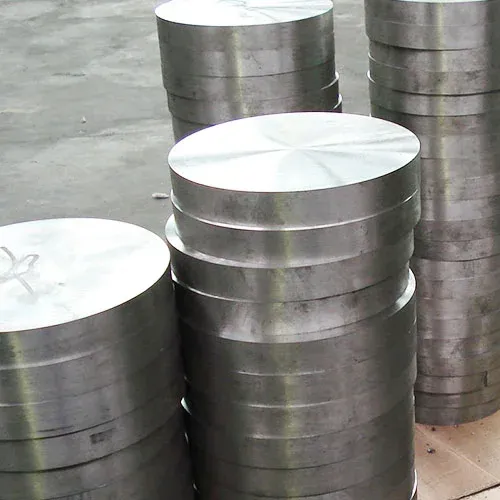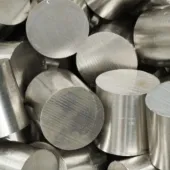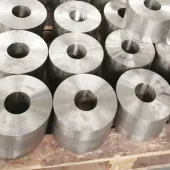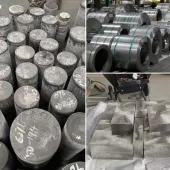
Comparing Popular Special Titanium Alloys for Industrial Use
Titanium’s unique properties make it valuable across many industries — but not all titanium is created equal. Special titanium alloys are engineered to perform under specific conditions, whether that’s high stress, corrosion, or temperature extremes.
This article compares several commonly used special titanium alloys to help you identify the best option for your industrial application.
Ti-6Al-4V vs Ti-6Al-2Sn-4Zr-2Mo (Ti 6242)
Both alloys are known for their strength and aerospace-grade reliability, but they serve different purposes.
| Property | Ti-6Al-4V | Ti-6242 |
|---|---|---|
| Strength | High | Very High (especially at elevated temps) |
| Temperature Performance | Up to 400°C | Up to 550°C |
| Machinability | Good | Moderate |
| Typical Application | Fasteners, implants | Jet engine parts, hot zones |
Conclusion: Ti-6Al-4V is more versatile and easier to work with, while Ti-6242 excels in high-temperature conditions.
Ti-15V-3Cr-3Sn-3Al vs Ti-3Al-8V-6Cr-4Mo-4Zr (Beta C)
These two beta alloys are used where formability or extreme strength is needed.
| Property | Ti-15V-3Cr-3Sn-3Al | Beta C |
|---|---|---|
| Cold Formability | Excellent | Low |
| Strength After Aging | Moderate-High | Very High |
| Weldability | Good | Difficult |
| Use Case | Cold-formed parts | Hydraulic systems, fasteners |
Conclusion: Ti-15-3 is great for shaped or bent parts; Beta C is chosen when extreme strength and pressure resistance are required.
Corrosion-Resistant Grades: Ti-0.2Pd (Grade 7) vs Ti-0.3Mo-0.8Ni (Grade 12)
When operating in aggressive chemical or marine environments, corrosion resistance is key.
| Property | Grade 7 (Ti-0.2Pd) | Grade 12 (Ti-Mo-Ni) |
|---|---|---|
| Chloride Resistance | Excellent | Very Good |
| Acid Resistance | Strong | Enhanced |
| Weldability | Excellent | Excellent |
| Typical Use | Heat exchangers, tanks | Desalination, chemical piping |
Conclusion: Both are top choices for corrosion-prone systems, with Grade 12 offering more mechanical strength for structural components.
Final Thoughts
Choosing the right special titanium alloy depends on your project’s requirements — whether that’s high temperature, corrosion, formability, or mechanical strength. By understanding the differences between popular alloys, you can make informed decisions that improve performance and reduce long-term costs.
Titanium Seller leads offers a complete range of industrial titanium alloys, each backed by material certifications and technical support. Contact our team to discuss the best fit for your application.
Quick Contact
Related Products
-

How to Select the Right Special Titanium Alloy for Your Project
Special Titanium Alloys
-

Why Special Titanium Alloys Are Essential for Aerospace Applications
Special Titanium Alloys
-

Special Titanium Alloys
Special Titanium Alloys